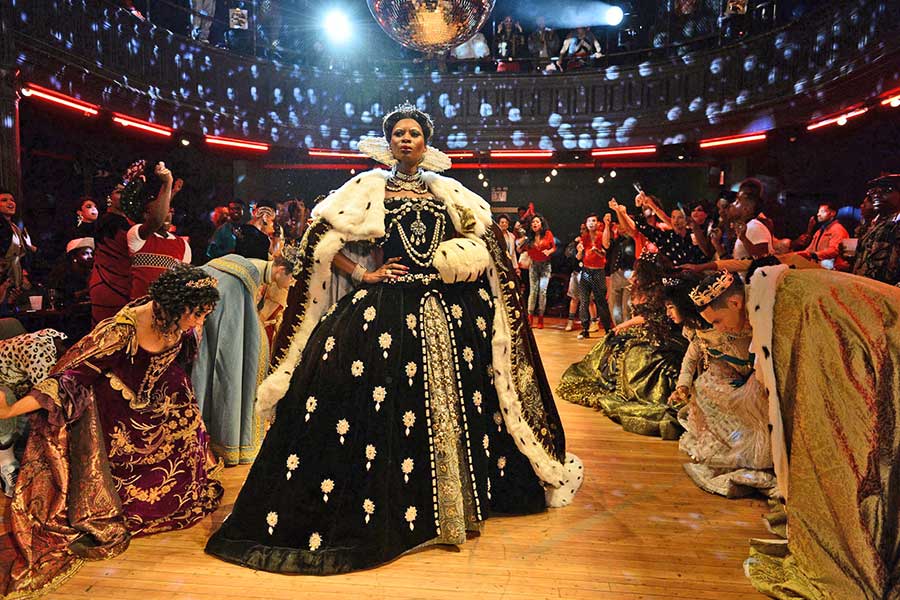As far as dancing, singing television goes, producer-writer Ryan Murphy has been there and done that with “Glee.” With that series (2009–15), high school and all of its true-to-life stereotypes (including one of the medium’s smartest gay characters) were given heft and solid dialogue to go with intersecting storylines. That’s Murphy’s thing: the intersection of psyches and storylines.
Now — after the crowd-pleasing “American Horror Story,” “American Crime Story” and the surprisingly un-camp “Feud” about Bette Davis and Joan Crawford — Murphy has returned to the musical form with “Pose.”
This time he’s bringing along the largest crew of transgender actors and creative staff ever assembled for a television series, including author Janet Mock (“Redefining Realness”) and Our Lady J (“Transparent”) as producers and writers, to tell a New York City story of 1980s ball culture — the houses built to support LGBTQ youth rejected by their birth families who compete hard and are judged on the merits of their outfits, dance skills and dramatic posing abilities. AIDS plays a prominent role in the “Pose” framework — the mysterious villain lurking in the shadows. All that is juxtaposed with the rise of the luxury-conscious Trump universe and the decay of the downtown music, social and art scenes, giving “Pose” relevant political currency.
The first episodes of “Pose” focus on the high of aspiration and rising above underdog status. From its young, innocent visitors from New Jersey and their first forays into the big city, the world of “Pose” — or at least its first episodes — is built happily upon hope.
At its heart, “Pose” tells a tale of family members who become friendly rivals: Blanca (Mj Rodriguez) breaks away from the mother of the House of Abundance, Elektra (Dominique Jackson), to form another regal domain, the House of Evangelista. One of Bianca’s first new family members is Damon (Ryan Jamaal Swain), a gay teenager and ballet dancer who left his mom and dad back Pennsylvania because they couldn’t deal with a gay son.
From there, this crew brings its vogue battles (choreographed by Leiomy Maldonado and Danielle Polanco), as cutting as any “Game of Thrones” joust. As all this dueling takes place, Pray Tell (Billy Porter of “Kinky Boots” fame) steers viewers through the minutiae of ball manners and rules, as well as placing those rules within the larger construct of the ’80s gay scene in New York City.
If this part of “Pose” looks familiar to fans of Jennie Livingston’s 1991 “Paris is Burning” documentary chronicling the Big Apple’s drag-ball scene of black, Latino, gay and transgender contestants, it’s supposed to. Murphy originally intended to make “Pose” a fictional adaptation of “Paris” until writer Steven Canals came along with a tale of drag-ball culturalism with greater, wider stories of the moment embracing money, gender, politics, race and sexuality in one epic package.
With the first and second episodes of “Pose” directed by Murphy to resemble the freneticism and family feel of that ball scene, his frequent collaborators (Evan Peters, Kate Mara, James Van Der Beek) and transgender actors (Hailie Sahar, Indya Moore, Dominique Jackson) zig-zag through this new, old world with the intersections of classic Murphy.
“Pose” airs Sundays on FX at 9 p.m.
